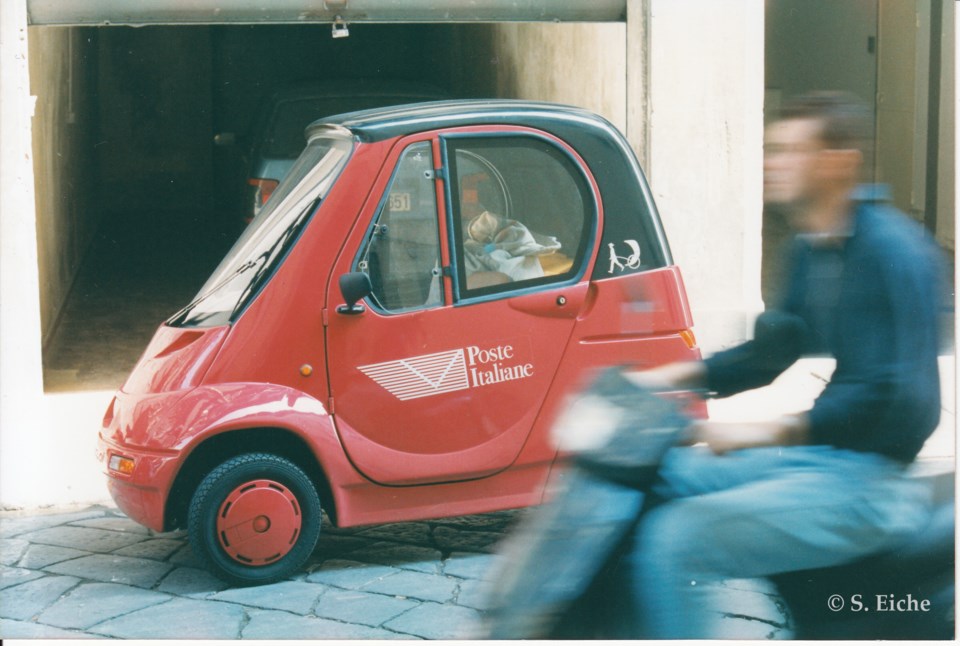First, apologies to Ecclesiastes 9:11 for appropriating and slightly twisting the verse in my headline – catchy titles are the trend nowadays.
The word speed has its source in the Anglo-Saxon sped, signifying success, prosperity and luck. This sense survives in the exclamation “Godspeed”, which you say to someone to wish them a safe and successful journey. Not until Late Old English (about 900 to 1170 AD) did speed acquire the additional meaning of swiftness (it would be interesting to investigate what was regarded as swift in the year 1000).
We live in a high-velocity age. I occasionally exceed the speed limit on Richmond’s roads, doing 60 kilometres per hour, or even faster, in a 50-zone. But no matter what my speed, cars will always pass me. They pass me on the right and they pass me on the left. TransLink buses bear down on me if I’m respecting the speed limit of 50 kilometres per hour. I get so frightened at seeing their looming hulks closing in behind me that I automatically step on the gas pedal.
Last year some Richmond roads had their speed limit reduced from 60 to 50 kilometers per hour. I first noticed the change on the No. 2 Road Bridge. A new sign appeared, with beneath it a smaller, bright yellow sign marked “New.” The first time I saw it I slowed down to 50. Cars slowed down behind me, but not because they accepted the speed limit. It was clear that they were only waiting for the chance to overtake me in the adjacent lane. The yellow sign was up for quite a while, but no one respected the new speed limit. To this day, no one respects it.
In the 19th century, in Europe and North America, the urban speed of motorized carriages ranged between two to 10 miles per hour. To begin with, when most of the road traffic still consisted of horse-drawn carriages, a man walked ahead of the motor vehicle to give warning of the approaching automobile. Of course, all that changed quickly. Britain, for instance, registered 23,000 cars on the road from 1904 to 1905, and increased the speed limit to 20 miles per hour. In 1932, by which time the speed limit had been abolished, the Liberal politician Lord Buckmaster stated, “The existing speed limit was so universally disobeyed that its maintenance brought the law into contempt.”
British Columbia’s experience of speeders has a long history. Autoists (as they were once called) driving on urban paved roads in 1912 were required to stay within the limit of 10 miles per hour. In April, “50 cars were nailed for speeding en route to an ‘aviation meeting’ in Eburne, across the original Marpole Bridge.” That spring, the Point Grey police were handing out so many speeding tickets to Vancouverites “that a delegation from the Automobile Club went to Point Grey council on May 22 to complain.”
Regardless of what the majority of drivers seem to think (and evidently have thought ever since adopting motorized locomotion), speed is not life-enhancing. It can make you miss out on a lot of what actually is life-enhancing. I came to this realization when I lived in Italy, where life moved at many different speeds.
Most cafes and bars in Italy offer at least a couple of chairs outside their premises, if not a whole outdoor area with chairs and tables. Sitting down, drinking a cappuccino or espresso, alone or in the company of friends, you can relax and watch the world go by. You see things you fail to see when you’re speeding along. You come to realize the absurdity of staying on that conveyor belt of life that hurtles you forward, not giving you time to absorb what’s around you – not giving you time to see what’s to right and left, not giving you time to enrich your storehouse of impressions and ideas.
The ancient Roman fabulist Aesop would have agreed – the race is not to the speeder, because the tortoise ultimately wins against the hare.
Sabine Eiche is a local writer and art historian with a PhD from Princeton University. She is passionately involved in preserving the environment and protecting nature. Her columns deal with a broad range of topics and often include the history (etymology) of words in order to shed extra light on the subject.



